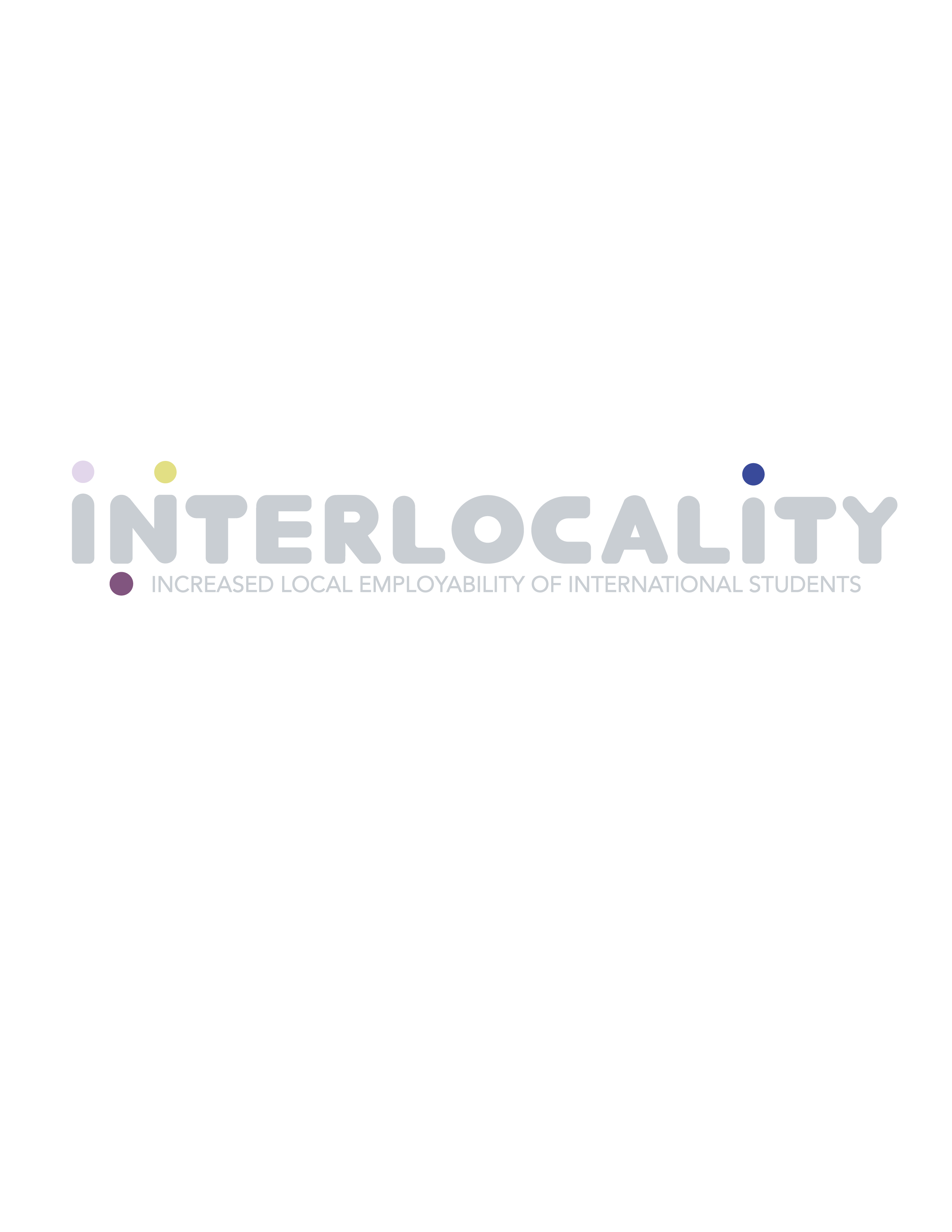As emerged from the research insights conducted within Workpackage 2 of the project, to enhance the employability and retention of international degree students, focusing solely on their preparation, networking, and competences is not sufficient. In fact, within the quadruple helix approach, it is increasingly crucial to equip employers, employees, third sector organisations), and Higher Education Institutions’ (HEIs) staff with strategic skills and knowledge. This is essential for efficiently guiding and supporting students to enter and to thrive in the local labour market.
This rationale underscores why the INTERLOCALITY project goes beyond activities and the development of intellectual outputs tailored to students, such as International Talent Journey (ITJ) and IAMT (International Alumni Monitoring Tool). The project involves the creation of three online courses addressed to staff in small and medium-sized enterprises (SMEs), third sector organisations, and HEIs, focusing on Employer-ability, Guidance and Counselling, and Intercultural Sensitivity. These courses were developed by the consortium partners, coordinated by ARCADA and SEND.
The prototypes of the three courses, each comprising three different proficiency levels (beginner, developing and skilled), have been developed and we are in the middle of piloting them in the partner countries. Starting from November 2023, these prototypes have undergone pilot testing in Denmark and Finland. This first piloting phase involved a total of 20 participants representing the three target groups for whom the courses are designed.
The participants piloted one or more courses and/or levels per course based on their individual preferences and interests. Following flexible online attendance of the course/level (in the Articulate Rise LMS), respondents were requested to complete a survey aimed at assessing the learning, quality, efficiency, consistency, and accessibility of the provided online learning paths.
The insights and feedback obtained from these surveys, as well as results gathered form the focus groups, play a vital role in developing the final version of the courses This iterative process is essential for achieving a high-quality final version of this project output that closely aligns with the needs of the target groups in terms of knowledge, attitudes, and competences necessary for guiding and retaining international students effectively.
The first respondents’ feedback and impression appear to be a largely positive. Indeed, a significant majority of the respondents expressed satisfaction with the quality and diversity of materials proposed, ranging from videos to articles and self-reflections. Additionally, the inclusion of voluntary and practical activities, coupled with the flexibility offered by the three courses, received favourable responses:
“I would like to have time to go through all the levels and all courses, such a great material! “
“Very inspiring and pedagogically build-up of materials!”
“I really liked the “self-reflect” sections as it sparked a lot of thought on different aspects.”
“A very good mix of data from research, videos, small exercises and self-reflection tasks. Especially the videos give a nice understanding of the concepts. The self-reflection tasks were really good to bring it from theory and make it relevant to my actual work.”
Other respondents required instead more practical activities and examples on the different topics included in the 3 levels of each course:
“I felt like there were many places where more examples could benefit the readers understanding of a topic as an example under intercultural teams’ part – there were a part with challenges and benefits – that could have been followed up with some specific examples.
“More about the challenges of leading a diverse workforce, examples and how to prevents or learn from potential challenges.”
“I would like to have gone even more in depth with models and theories underlying the practical work, and I would have loved to have had seen more videos showing the theories applied in practice with follow-up discussion or analysis sections of the featured content.”
Overall, respondents from various professional roles and positions have expressed significant appreciation for the accessibility and structure of the courses. The inclusion of an initial quiz, introduction to the course, lessons, a “check your knowledge” section, conclusion, and a list of sources received positive feedback across the board.
The favourable reception suggests that the well-organised course structure, including interactive elements like quizzes and a knowledge-check section, resonated positively with participants regardless of their specific roles or positions. This consistency in feedback highlights the effectiveness of the course design in catering to diverse learning preferences and needs.
“The initial quiz serves as a good introduction to the topic.” “It is good to establish your starting points.”
“I loved the navigation. The animations and transitions made it game-like which helped a lot.”
“It [check your learning section] helped me to assess my learning. I think it is useful to reflect on the learning outcomes.”
However, in the survey respondents share some comments to make improvements that will surely help the consortia to further increase the learning and quality of the courses:
“Like said previously maybe check your learning could be always before going to the next segment of the level to enhance the learning and reflection.”
“The quiz is good, I am wondering whether only 5 questions are enough to judge my level though. But on the other side it’s short and concise.”
The second phase of piloting is scheduled for the end of January 2024. This time, the piloting and focus groups will be conducted in Germany and the Netherlands, organised by FH Münster and Fontys, respectively. The insights gathered from these pilots will enable the consortia to acquire additional insights to make adequate changes and improvements to the courses, aiming for a purposeful and high-quality final version. Simultaneously, efforts will be initiated to develop a user guide for the models. The aim is to facilitate new users of the courses and to spread the possibility to learn and develop for as many stakeholders as possible. This being highly relevant for the sustainability of the developed courses by relevant stakeholders, in order to guarantee future sustainability of this project output.
